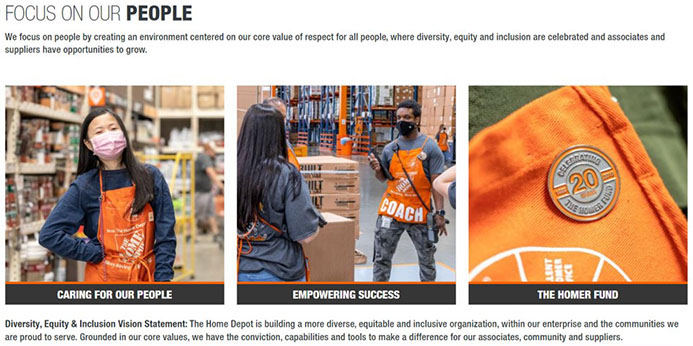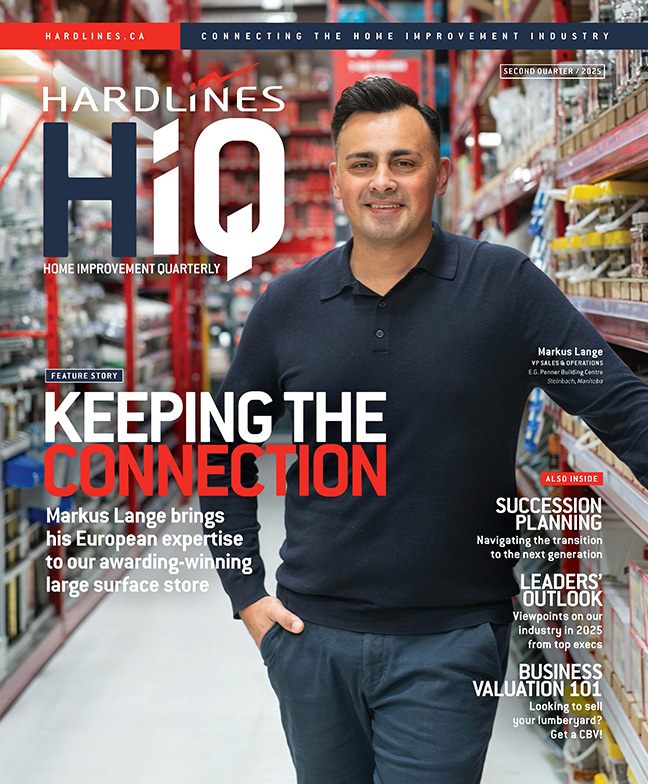 Martina Pileggi is senior director of human resources for the Hillman Group Canada, a fastener producer for the hardware, automotive, plumbing, and electrical markets.
Martina Pileggi is senior director of human resources for the Hillman Group Canada, a fastener producer for the hardware, automotive, plumbing, and electrical markets.
Are we coming out of COVID yet? That’s the big question everyone is facing as companies move to restore some sense of normalcy to their staffing practices. As HR lead at Hillman Group Canada, Martina Pileggi is confronting this issue head on. She sees people getting back to the workplace, but in new ways informed by the experience of almost three years under pandemic restrictions.
She admits that the uncertainty about what’s coming next makes her job interesting—to say the least. “People are learning to re-engage with work. My read is that we are normalizing it. It’s just part of the fabric of day-to-day life, right?”
Hillman is using a hybrid model that was introduced last year, with people coming in three days and staying home two days. Aside from must-attend meetings, staff can choose their days. This system, Pileggi says, “worked very well for us, for our culture. In fact, we are seeing more people being in the office versus not being in the office.” Hillman has set its capacity at the office at about 60 percent of pre-pandemic levels.
September was very busy for the company with customers welcomed back into the office for the first time. Sales and operations teams started getting together as well. Hillman encourages employees to wear masks—but the company encourages an inclusive environment that respects individual choices.
Overall, Pileggi feels the worst is over and it’s reflected in her own demeanour. “It all feels really good… and more sort of normalized. I think we’re all less tense—I’m less tense—because you can actually come in and do work. I feel like I’m finally doing HR work.”
Pileggi says people can actually have fun again.
“Finally, after two years, I’m not living in COVID land. You know, I’m actually focused on learning and development and recruiting and culture—and finally doing my job.”

 The Home Depot has an entire webpage devoted to details of the company that have nothing to do with sales per square foot, inventory turns, or product specials.
The Home Depot has an entire webpage devoted to details of the company that have nothing to do with sales per square foot, inventory turns, or product specials.
 This month we talk with Walter Pranke, former vice president, human resources at Lee Valley Tools, a chain of tool and gift stores based in Ottawa. Walter was instrumental in helping Hardlines develop our HR content when we launched this newsletter a year and a half ago. A certified executive coach, he has returned to private consulting following his contract with Lee Valley.
This month we talk with Walter Pranke, former vice president, human resources at Lee Valley Tools, a chain of tool and gift stores based in Ottawa. Walter was instrumental in helping Hardlines develop our HR content when we launched this newsletter a year and a half ago. A certified executive coach, he has returned to private consulting following his contract with Lee Valley. Next month, front-line workers at Lowe’s stores will find extra cash in their payroll deposits, thanks to a bonus program from head office. The program was announced during a call by company executives to analysts following the release of Lowe’s second-quarter results.
Next month, front-line workers at Lowe’s stores will find extra cash in their payroll deposits, thanks to a bonus program from head office. The program was announced during a call by company executives to analysts following the release of Lowe’s second-quarter results. One of the important buzzwords of modern HR is “employee engagement.” Engaged employees improve your business. Disengaged employees damage it. Actively disengaged employees can destroy it.
One of the important buzzwords of modern HR is “employee engagement.” Engaged employees improve your business. Disengaged employees damage it. Actively disengaged employees can destroy it. Donald Cooper is a Toronto-based
Donald Cooper is a Toronto-based  By HR and health & safety consultancy Peninsula Canada
By HR and health & safety consultancy Peninsula Canada